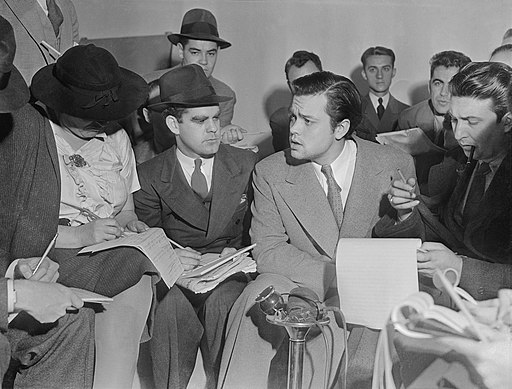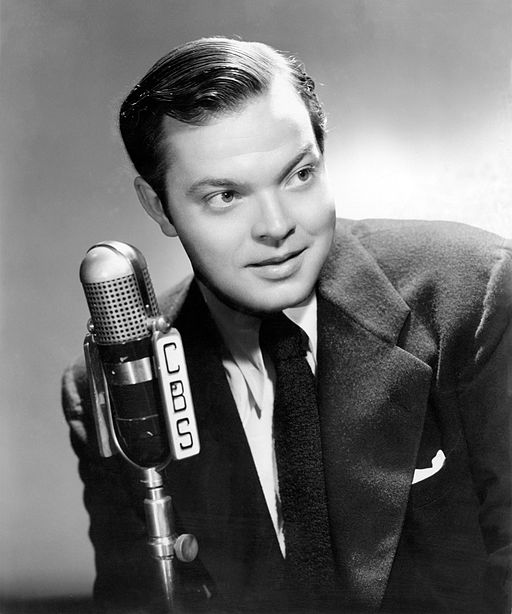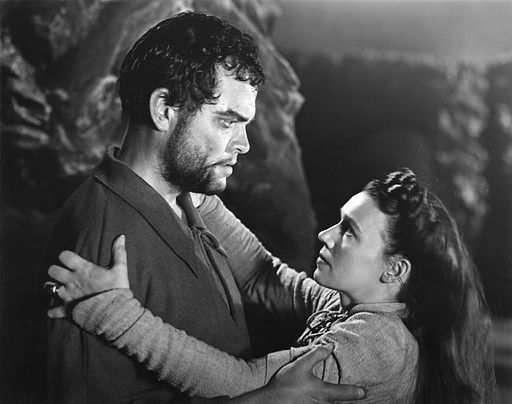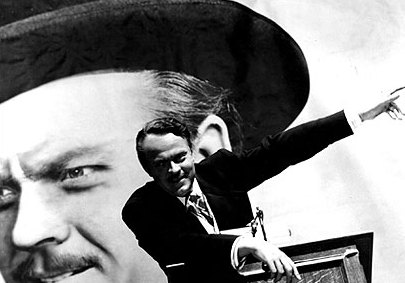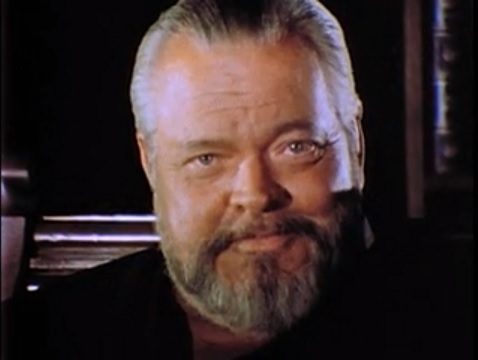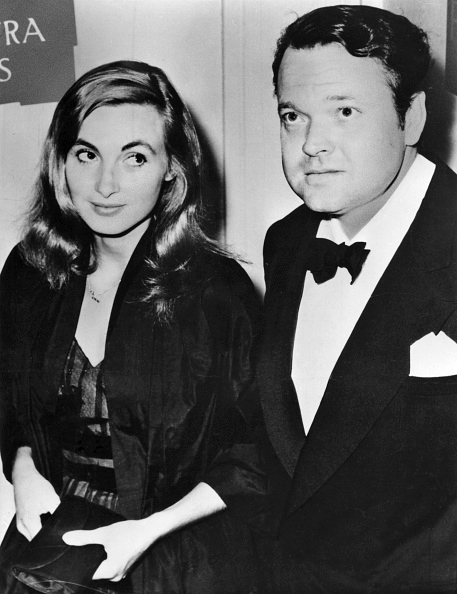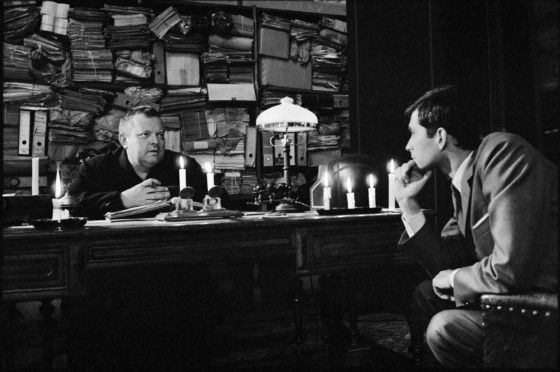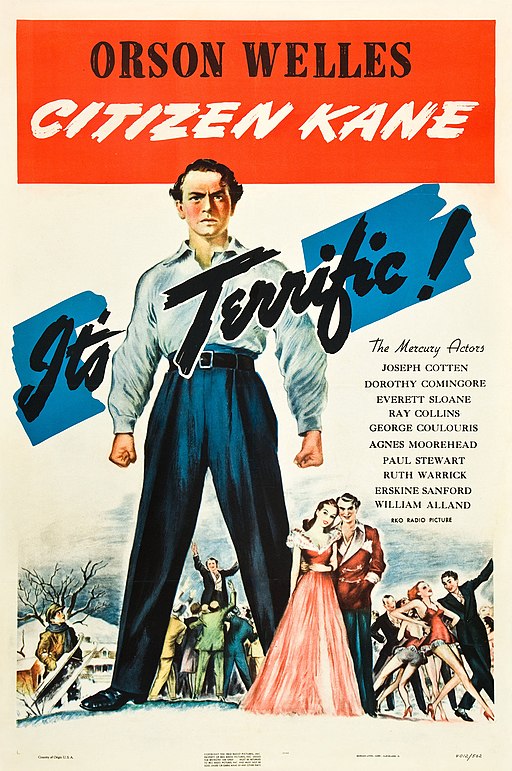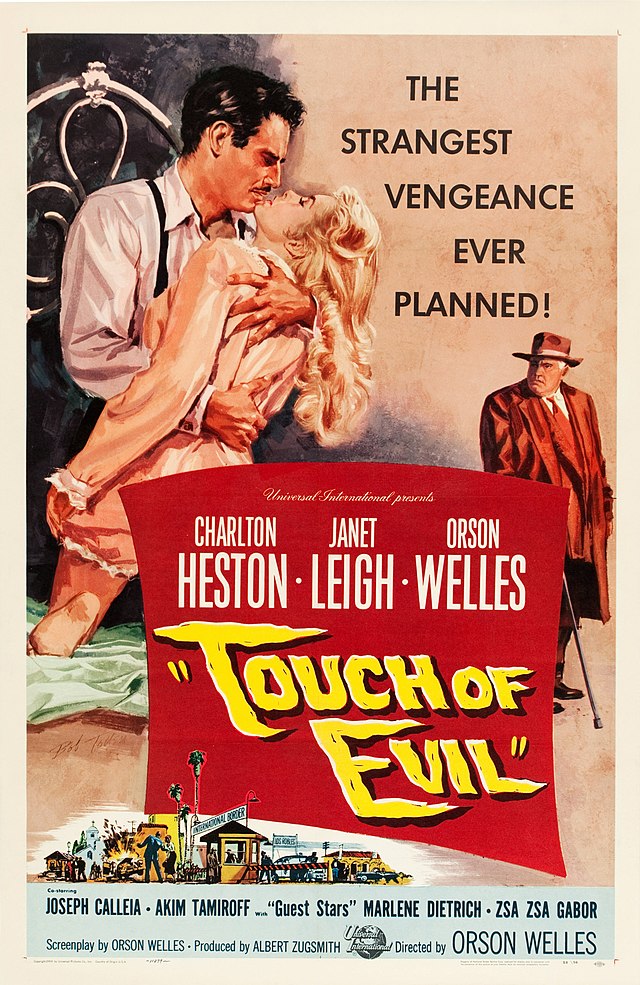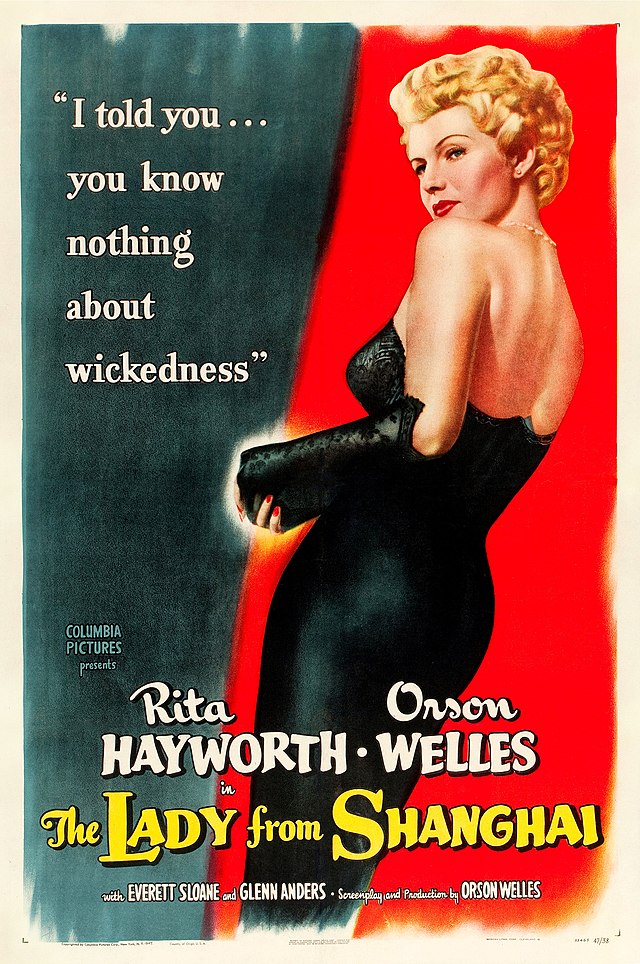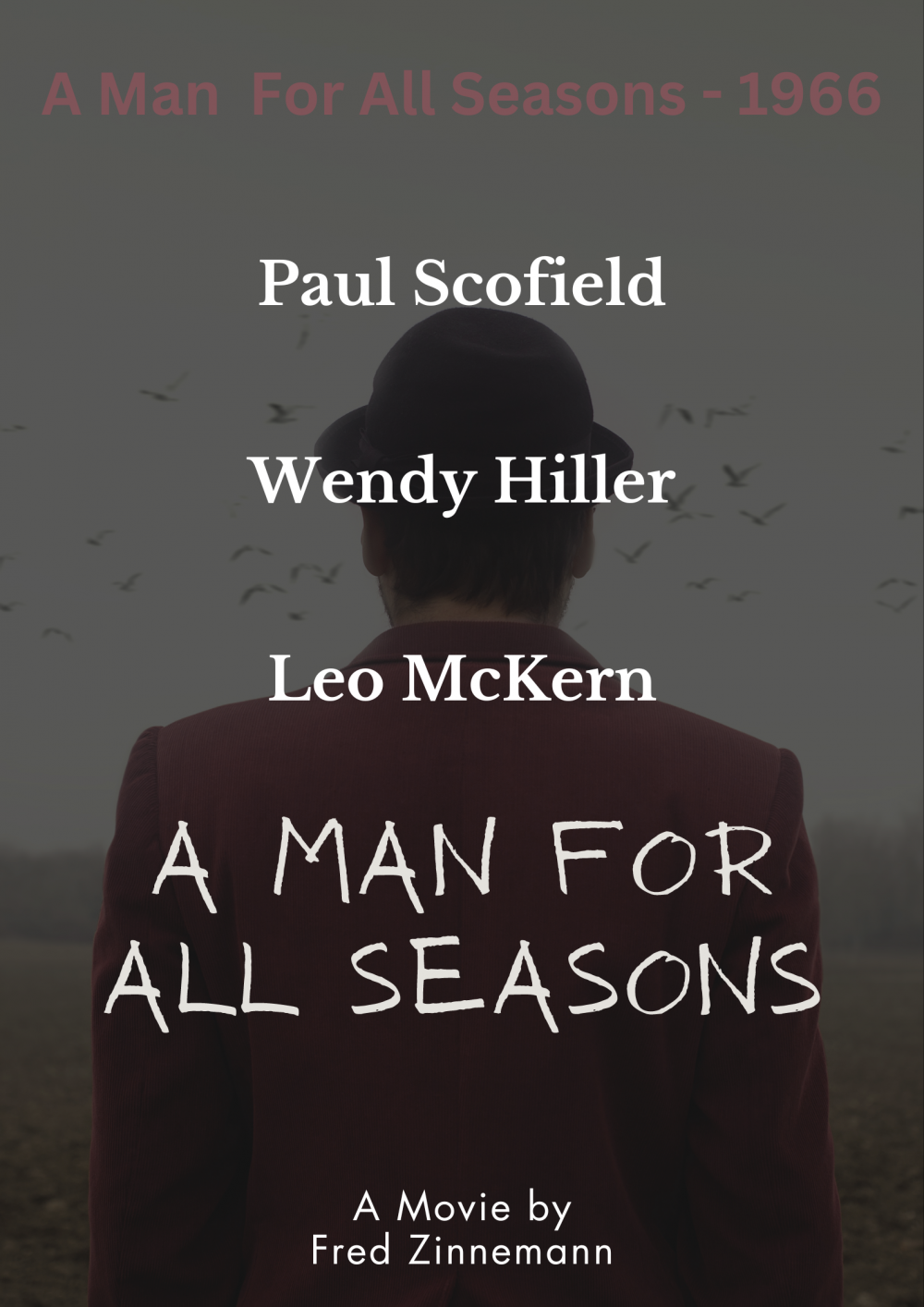Orson Welles
back| Full Name | George Orson Welles |
| Born | May 6, 1915 |
| Birthplace | Kenosha, Wisconsin, USA |
| Died | October 10, 1985 |
| Buried | Cremated, and his ashes were scattered in a flower garden at the Ronda property of his friend, the bullfighter Antonio Ordóñez, in Andalusia, Spain. |
| Married to | Virginia Nicolson (1934–1940) - Rita Hayworth (1943–1947) - Paola Mori (1955–1985) |
| Children | Christopher Welles Feder (with Virginia Nicolson) - Rebecca Welles Manning (with Rita Hayworth) - Beatrice Welles (with Paola Mori) |
| Notable films | Citizen Kane (1941) - The Magnificent Ambersons (1942) - Touch of Evil (1958) - Chimes at Midnight (1965) - F for Fake (1973) |
Orson Welles
The Renaissance Man of Hollywood
Orson Welles was a legendary filmmaker and actor known for his innovative work in radio, theatre, and film. A prodigious talent, Welles' 1938 radio adaptation of "The War of the Worlds" famously caused nationwide panic.
His 1941 film debut, "Citizen Kane," in which he starred, directed, co-wrote, and produced, is often hailed as the greatest film ever made, renowned for its groundbreaking narrative structure and visual style.
Welles' career was marked by his artistic ambition and frequent clashes with Hollywood studios, leading to many unfinished projects.
He was often referred to as a "Renaissance Man" of the modern era due to his multifaceted talent and contributions across various artistic mediums.
Related
Orson Welles (1915 – 1985)
Biography and Career Overview
Orson Welles, whose full name was George Orson Welles, was an American actor, director, writer, and producer who revolutionized the art of filmmaking. His life was as dramatic and multifaceted as his films.
Early Life and Education
Born on May 6, 1915, in Kenosha, Wisconsin, Welles was the second son of Richard Head Welles, an inventor, and Beatrice Ives, a concert pianist. His early life was marked by affluence and cultural enrichment, setting the stage for his eclectic interests in arts and literature. Tragically, his mother died when he was just nine, and his father, who struggled with alcoholism, passed away when Welles was fifteen.
Welles attended the Todd School for Boys in Woodstock, Illinois, where he found a nurturing environment for his burgeoning creative talents. He skipped college, choosing instead to travel to Europe, where he briefly worked as a painter.
Theatrical Career
Returning to the United States, Welles began his theatrical career in the 1930s. He directed and acted in numerous stage productions, showcasing his flair for dramatic and innovative interpretations. His 1937 production of "Macbeth" with an all-Black cast and his 1937 modern-dress adaptation of "Julius Caesar" gained him significant attention.
Radio Success
Welles transitioned into radio, where his baritone voice and flair for drama made him a national sensation. His 1938 broadcast of "The War of the Worlds" famously caused panic among listeners who believed the fictional Martian invasion was real.
Hollywood Entry and "Citizen Kane"
In 1939, Welles moved to Hollywood, where he signed a contract with RKO Pictures. This deal granted him unprecedented control over his projects, a rarity for a newcomer. In 1941, he co-wrote, produced, directed, and starred in "Citizen Kane." Despite facing controversy and limited release due to its alleged portrayal of media magnate William Randolph Hearst, the film later emerged as a masterpiece, celebrated for its narrative structure, visual style, and innovative techniques.
Subsequent Films and Studio Conflicts
Welles's subsequent Hollywood career was turbulent, marred by conflicts with studio executives. "The Magnificent Ambersons" (1942) and "Touch of Evil" (1958) were significantly altered by studios, much to his dismay. Despite these setbacks, these films are now revered for their artistic merit.
European Ventures and Later Career
In the 1950s, Welles moved to Europe, working on a variety of independent film and theater projects. He continued to act in both his own films and others', showcasing a remarkable range. His later works, like "Chimes at Midnight" (1965) and "F for Fake" (1973), though less commercially successful, were critically acclaimed and reflected his enduring creativity and versatility.
Personal Life
Welles was known for his charismatic and larger-than-life persona. He married three times—first to Virginia Nicolson, then to Hollywood star Rita Hayworth, and finally to Italian actress Paola Mori. He had three children: Christopher, Rebecca, and Beatrice. His personal life, marked by tumultuous relationships and financial struggles, often mirrored the dramatic intensity of his professional life.
Death and Legacy
Orson Welles passed away on October 10, 1985, from a heart attack. He left behind a legacy that forever changed the landscape of cinema. His innovative techniques in cinematography, storytelling, and directing are studied and admired to this day. Welles remains a towering figure in the history of film, a testament to the power of vision, creativity, and perseverance in the face of adversity.
Interview with Orson Welles from 1974:
Directing Style of Orson Welles:
Orson Welles' directing style is celebrated for its innovation, creativity, and lasting influence on the world of cinema. His approach to filmmaking was characterized by several key elements:
- Deep Focus and Long Takes: Welles often used deep focus cinematography, a technique that keeps objects in both the foreground and background in sharp focus. This is evident in "Citizen Kane," where he employed long takes and deep focus to create complex visual compositions.
- Innovative Camera Angles: Welles was known for his use of unusual camera angles to create dramatic emphasis and convey psychological nuances. Low-angle shots, for instance, were used to depict characters' dominance or significance.
- Play with Light and Shadow: Influenced by German Expressionism, Welles masterfully used lighting to create mood and atmosphere, particularly in his film noir works like "Touch of Evil."
- Non-Linear Storytelling: Welles often employed non-linear narratives, which required audiences to piece together the story from fragmented sequences. "Citizen Kane" is a prime example, told through a series of flashbacks.
- Themes of Power and Corruption: Many of Welles' films explore the themes of power, corruption, and moral ambiguity, reflecting a cynical view of human nature.
- Innovative Use of Sound: Welles, coming from a radio background, was adept at using sound to enhance the storytelling. His use of overlapping dialogue and ambient sounds created a more realistic and immersive audio experience.
- Directing Actors: Welles' experience as a theater director influenced his approach to directing actors. He was known for eliciting strong, stylized performances from his cast.
- Casting Choices: Welles often cast himself in significant roles and worked with a regular ensemble of actors, creating a distinct acting style within his films.
- Battles with Studios: Welles frequently clashed with Hollywood studios, seeking creative control over his projects. His struggles with studio interference are as legendary as his films, especially in the case of "The Magnificent Ambersons."
- Innovative Production Techniques: Often working with limited budgets, especially in his later European films, Welles was known for his resourcefulness and ability to improvise during production.
- Exploration of Human Nature: Welles' films often delve into the complexities of human nature, exploring themes like identity, memory, and the elusive nature of truth.
- Pioneering Auteur: Welles is often cited as a prime example of an auteur director, one whose personal vision and style are evident in all his films.
- Influence on Filmmaking: His innovative techniques in both visual and narrative storytelling have influenced countless filmmakers and continue to be studied and admired.
Memorable Quotes from Orson Welles:
- On Film-making:
"A film is never really good unless the camera is an eye in the head of a poet."
- On Storytelling:
"If you want a happy ending, that depends, of course, on where you stop your story."
- On Art and Commercial Success:
"The enemy of art is the absence of limitations."
"I don't pray really, because I don't want to bore God."
"Popularity should be no scale for the election of politicians. If it would depend on popularity, Donald Duck and The Muppets would take seats in senate."
- On His Own Work:
"I think an artist has always to be out of step with his time."
- On Hollywood:
"Hollywood is like Picasso's bathroom."
- On Perfection and Creativity:
"The notion of directing a film is the invention of critics - the whole eloquence of cinema is achieved in the editing room."
- On Life and Success:
"My doctor told me to stop having intimate dinners for four. Unless there are three other people."
"Success is simply a matter of luck. Ask any failure."
- On Age and Experience:
"I started at the top and worked my way down."
- On Personal Philosophy:
"I don't say we all ought to misbehave, but we ought to look as if we could."
Awards and Recognition:
Academy Awards (Oscars)
- 1942: Nominated for Best Actor in a Leading Role, Best Director, and Best Picture for "Citizen Kane." He won for Best Writing, Original Screenplay along with Herman J. Mankiewicz.
- 1971: Received an Honorary Award "for superlative artistry and versatility in the creation of motion pictures."
Cannes Film Festival
- 1946: "The Stranger" was nominated for the Grand Prize of the Festival.
- 1952: Won the Grand Prize of the Festival for "Othello."
Venice Film Festival
- 1947: "The Lady from Shanghai" was entered.
- 1966: "Chimes at Midnight" won the 20th Anniversary Prize and the Technical Grand Prize.
BAFTA Awards
- 1968: Nominated for Best Foreign Actor for "Chimes at Midnight."
Other Notable Recognitions
- 1958: "Touch of Evil" won the Brussels World Film Festival award for Best Director.
- 1975: Welles was awarded the American Film Institute (AFI) Life Achievement Award.
- 1978: Welles was honored with the Career Golden Lion at the Venice Film Festival.
- 1979: "Filming Othello" won the Peabody Award.
- 1984: He received the Directors Guild of America (DGA) Lifetime Achievement Award.
- Posthumous: "The Other Side of the Wind," completed after his death, was nominated for awards at the Venice Film Festival and the Satellite Awards in 2018.
Legacy and Honorary Recognitions
Welles's legacy in the film industry extends far beyond these awards. The lack of extensive formal recognition during his lifetime is often attributed to his tumultuous relationship with Hollywood and the studio system, as well as the ahead-of-its-time nature of his work. His influence on film art and theory, as well as his status as a pioneering auteur, make him a seminal figure in cinema history. The retrospective appreciation and study of his work have secured his place as one of the most respected and influential directors in the history of filmmaking.
Movies Directed by Orson Welles:
1941: Citizen Kane
- Synopsis: A groundbreaking film that follows the life of Charles Foster Kane, a wealthy newspaper magnate. Told through flashbacks, the film explores themes of power, corruption, and the elusive nature of truth. It's famous for its innovative narrative structure, deep focus cinematography, and the unsolved mystery of "Rosebud."
1942: The Magnificent Ambersons
- Synopsis: Adapted from Booth Tarkington's novel, this film portrays the declining fortunes of a proud Midwestern family in the early 20th century. It's noted for its complex characterizations and elegiac tone, despite being heavily edited by the studio against Welles's wishes.
1943: Journey Into Fear (uncredited)
- Synopsis: Based on the novel by Eric Ambler, this film noir co-written and produced by Welles, features a US Navy engineer pursued by Nazi agents. Welles directed some scenes, although uncredited.
1946: The Stranger
- Synopsis: A film noir about a war crimes investigator tracking a high-ranking Nazi fugitive to a small Connecticut town. This was the first Hollywood film to show footage of the Holocaust.
1947: The Lady from Shanghai
- Synopsis: A film noir involving a confusing plot of love, betrayal, and murder. The film is famous for its hall of mirrors climax and is noted for its experimental cinematography and complex narrative structure.
1948: Macbeth
- Synopsis: An adaptation of Shakespeare's play, this film is known for its expressionistic style and use of Scottish accents. It explores themes of ambition, power, and fate.
1952: Othello
- Synopsis: Another Shakespeare adaptation, the film tells the tragic story of Othello, a Moorish general in the Venetian army. It's noted for its lavish cinematography and the powerful performances.
1955: Mr. Arkadin (also known as Confidential Report)
- Synopsis: A complex plot involving a wealthy and mysterious man, Mr. Arkadin, who hires an American smuggler to investigate his past. The film is known for its nonlinear narrative and globe-trotting locations.
1958: Touch of Evil
- Synopsis: Set in a corrupt border town, this film noir explores themes of justice and corruption. Famous for its long opening tracking shot, the film stars Welles as a corrupt police captain and Charlton Heston as a Mexican narcotics officer.
1962: The Trial
- Synopsis: Based on Franz Kafka's novel, this film follows the story of Joseph K., who is arrested and prosecuted by a remote, inaccessible authority. The film's theme revolves around the helplessness and terrifying surrealism of bureaucracy.
1965: Chimes at Midnight (also known as Falstaff)
- Synopsis: Combining several Shakespeare plays, this film focuses on the character Sir John Falstaff and his relationship with Prince Hal. It's celebrated for its battle scenes and emotional depth.
1968: The Immortal Story
- Synopsis: A wealthy merchant in Macao becomes obsessed with a sailor's tale and seeks to recreate it in real life. This was Welles's first color film and is known for its lush cinematography and contemplative pace.
1973: F for Fake
- Synopsis: A documentary-style film about art forger Elmyr de Hory and the nature of authorship and authenticity. It's a playful, self-referential work that blends truth and fiction.
1979: Filming Othello
- Synopsis: A documentary film in which Welles reflects on the making of "Othello." It includes insights into his creative process and the difficulties he faced during production.
Posthumous Releases:
There were several unfinished projects by Welles that were released or completed posthumously, including:
- "Don Quixote" (unfinished project, various versions edited and released after his death)
- "The Other Side of the Wind" (2018, Netflix release) - A film about an aging film director reflecting on his life. It was shot in the 1970s but remained incomplete until 2018.


